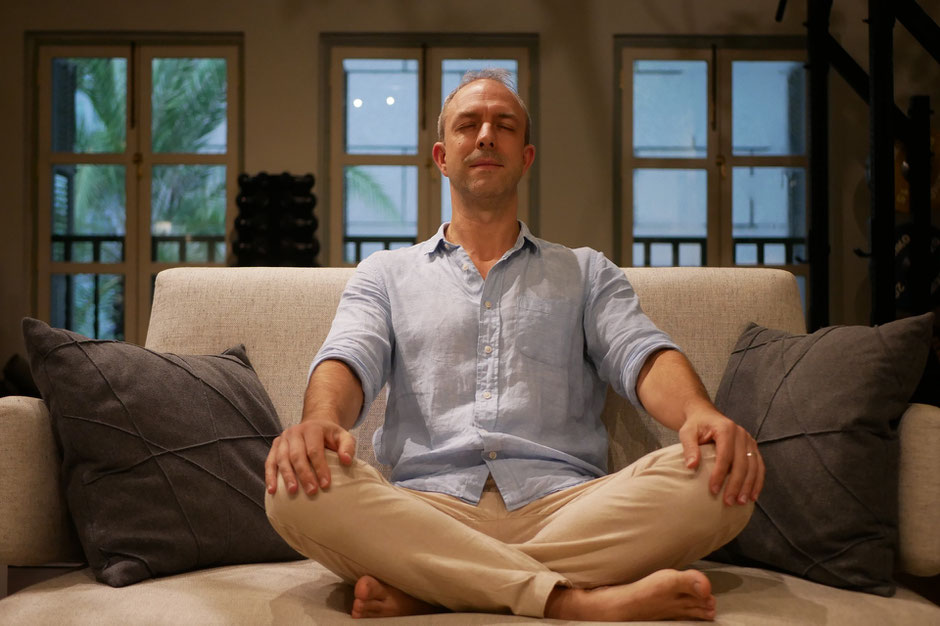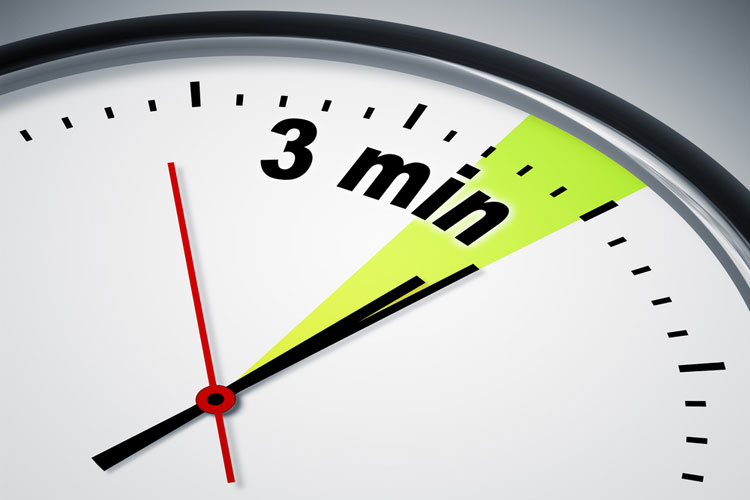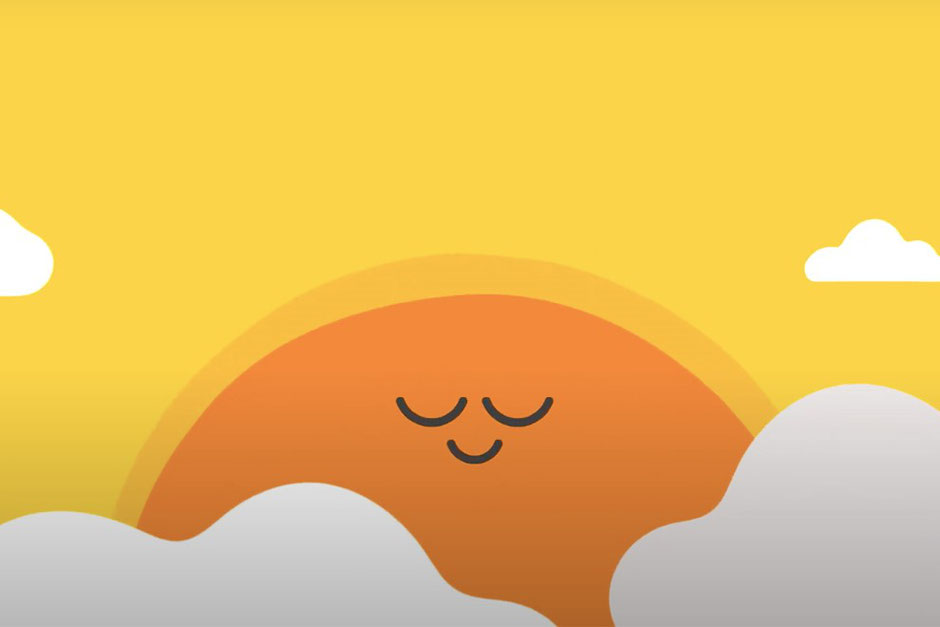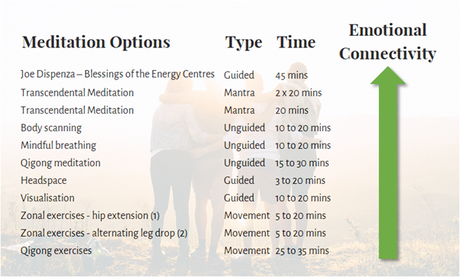Too busy to meditate? Suspect it’s a waste of time? Tried it but have too much of a jumpy mind? Then start reading this now as this is exactly what you need. We’ve put this guide together specifically for the busy senior executive in mind who is pressed for time. We are going to look at the most effective meditation techniques and then “bling them up” in true biohacking style to make them even more powerful than normal. Can you change your life in only 3 minutes a day? Check out The Dummies Guide to Meditation - For Busy Executives and find out.

So what’s the problem?
You’re stressed and anxious? You have enough money but you’re not content. You know there are people in the world that are financially much worse off than you and that should make you feel grateful. But you don’t. So what’s going wrong? Simple - you’ve spent a lot of time exercising that small portion of your brain that helps you to make money. But very little of your time on other aspects of your mind which is in a bit of a mess. If we’re talking about a house maybe you have a super tidy kitchen that produces food. But the living room, dining room and bedrooms are a untidy. You never paid attention to those rooms in the house so they’re a disaster zone. Just like your mind!

And what’s the solution?
It’s time to tidy up the clutter to create a cleaner, clearer mind. There are many ways to do this. You can work with a psychologist who will prod around and dig into your past. You can work with a hypnotherapist to help exorcise past traumas. You can get the support of a holistic lifestyle coach who will help guide you, with the latest cognitive behavioural therapy techniques (CBT), to a better you. Or you can start meditating - the advantage being that it’s free and you can start right away!

What benefits can you expect?
When I first started meditating about a decade ago, I didn’t notice much difference in the first few weeks. In fact I don’t remember much improvement at all. But as we were taught at the CHEK Institute in California it’s important that when you try a new technique you should do it every day for 100 days to make sure it works for you, before you advise your clients. So I did. For 100 days. And then I gave up for a week. And do you know what happened? My stress levels went through the roof! I noticed that I was far more anxious and agitated by little things that didn’t normally bother me. I had reverted to my ‘pre-meditation state’. So I jumped back on the meditation band wagon and never looked back – it’s been awesome for me. I also noticed that if I meditated regularly I was more efficient at work, more focused, less distracted and actually got more work done and felt good about it.
This was me doing 100 days of qigong using a tai chi ruler. It was "OK" but after 100 days I went back to my preferred meditation technique which works better for me.
And what does the science say about meditation?
There's a ton. Here are some highlights:
- People who have undergone extensive meditation training have shown improvements on cognitive performance (Cahn & Polich, 2006) and mood (Davidson et al., 2003).
- Long-term meditation practice has been found to enhance attention (Jha, Krompinger, & Baime, 2007).
- Meditation training heightened activation in executive attention networks that was correlated with improvements in sustained attention and error monitoring (Short et al., 2007).
- Mindfulness Based Stress Reduction (MBSR) programs have been found to improve mood and affective processes (Nyklícek & Kuijpers, 2008); and are associated with improvements in immune system functioning (Davidson et al., 2003), stress (Carlson, Speca, Faris, & Patel, 2007), and emotional regulation (Nielsen & Kaszniak, 2006).
- A study (Zeidan, Gordon, & Goolkasian, 2009) found that 3 days of MM training was effective at reducing pain ratings and sensitivity, as well as anxiety scores when compared to baseline and other cognitive manipulations, such as relaxation.
- A similar training regimen improved mood and reduced heart rate when compared to a sham MM and control group (Zeidan, Johnson, Gordon, & Goolkasian, in press).
- Several studies have supported meditation as an effective treatment for insomnia (Black et al. 2015 and Ong at al., 2014).
So in summary we have improvements in:
- cognitive performance
- attention
- executive functioning
- error monitoring
- mood
- happiness
- immune system
- stress
- emotional regulation
- pain reduction
- pain sensitivity
- anxiety
- heart rate
- insomnia
You can get links to all these from Mindfulness meditation improves cognition: Evidence of brief mental training (Zeidan et al., 2010).

OK Levitise you’ve convinced me! How do I get started?
Unambitiously! What? That’s right you want to start super small, don’t be too greedy and just focus on it becoming a regular practice. That’s where the results come in. Every day, including weekends, holidays, super busy workdays, whatever. If you’re feeling great now then maybe you can squeeze in 10 mins, or even 20 mins, of meditation a day. But if you haven’t built it into a habit then as soon as life throws you a curve ball, you might skip it for a day or two, and that’s exactly the days that you need it. So start small, build it into a habit, and then increase the dose. At the start you're not looking to immediately relieve stress and anxiety but to just build a habit.
We recommend starting with Andi Puddicombe’s Headspace app. It’s super easy to get into, has some great little explanations, he has a nice voice to listen to and you can do it for only 3 minutes a day.

We suggest the following progression:
Month 1: start off doing 3 minutes a day (0.2% of your day) every day as soon as you wake up in the morning. We want to nail down the consistency. That is key. After all, you consistently brush your teeth. You don’t want to go to work with a dirty mouth? So why go with a dirty mind? Just because you can’t see it, or smell it, doesn’t mean it isn’t full of junk!
Month 2: then switch to 5 minutes a day.
Month 3: then the big jump to 10 minutes a day.
Month 4: then up to 15 minutes a day.
Month 5: then finally 20 minutes a day. Based on all the research, anecdotal evidence and personal experience 20 mins seems to be the sweet spot with diminishing returns after that time. This might feel like a long time initially. But after a while those 20 mins will be gone in a blink of an eye, and you’ll be craving it!
Month 6: in month 6 I recommend dumping the app completely (sorry Andi) and following exactly his process on your own, unguided. That way you have a fully-fledged technique that you can pull out whenever you like, wherever you are.

How to biohack your meditation it to make it even better
So you’re only starting off doing 3 minutes a day. That’s cool. But can we improve that 3 minutes? Sure! You can lie on the hard floor with no pillow (unless that's super uncomfortable). That should be a posture that every normal human can adopt. If you have any tightness in your spine, and maybe a kyphotic thorax and lordotic lumbar, then lying on the floor will increase resistance on your thoracic spine, relieving pressure or your tight low back, and create a little breathing space between your vertebrae. You can do that at the same time as you’re meditating.
Secondly you can put your legs up on a couch. Why? Because when you put your legs up high, blood flows from your legs to your belly. That’s the same thing that happens when you’re relaxed (parasympathetic mode). So by allowing increased blood flow via gravity into your abdominal region you will increase feelings of rest and relaxation.
Thirdly if you are not following the app and doing a different technique (for example mindful breathing) then you can play binaural beats on your headphones. Binaural beats play different frequencies of sounds in each ear and your brain interpolates the difference. This causes your brain to operate on a new frequency which can coax it into a different state depending on the song. I like Zen Focus by Binaural Beats Meditation which you can find on Spotify.

And lastly if you are the type of person who wants to try different techniques then feel free to reach out to us as we have learnt a bunch. Some of these are more advanced than others. Some are simple. Some work better than others. But just like exercise it’s a very personal experience so you need to work out what’s best for you. Here are a bunch that I have personally tried for a minimum of 100 days each.
So that's all for now. If you have any more questions please do ask in the comments below and we'll answer here and update the FAQs as well so this page becomes an evolving post.
To your health, happiness and longevity
The Levitise Team
P.S. If you love this blog post then do check out our fortnightly newsletter where you'll get the freshest content on health, nutrition and fitness delivered straight to your inbox. Don't miss out and sign up here.
Frequently Asked Questions
My mind is too jumpy to meditate and I can’t concentrate. Should I quit?
No. Those thoughts that keep interrupting, particularly the negative ones, are the trash in your house. They need to be thrown out and exorcised. Let them wash over you, ignore them, and get back to the meditation and don’t worry about it. Better that you emotionally detox during a meditation session otherwise you will do it in your sleep in the form of nightmares. Nightmares are an emotional detox. The more practice you have the less this will happen.
I don’t have time today. Should I do double tomorrow instead?
No. Find the time. And if you wake up late and are rushing then find the time to pop off to the toilet or some quiet place to meditate for 3 minutes to ensure regularity in your practice. Consistency, consistency, consistency.
What’s the difference between guided, unguided, mantra based, movement etc.?
Guided meditations are when you listen to someone talking. Unguided is DIY. Visualisations are when you picture something like the sun or the moon moving through your body or maybe visualising a relaxing scene. Mantra based are when you repeat a word or phrase over and over again until you start drifting off with the fairies. Movement based are super super slow moving meditations done at the speed of your breath and often focusing on a certain area of your body.
What's mindfulness?
Mindfulness is just concentrating on what you're doing. You can wash the dishes mindfully or you can day dream at the same time (unmindful). Generally you're always going to be mindful when you're meditating unless you reach some kind of transcendental state.
Can I meditate after my morning cuppa?
No. Caffeine ramps up your CNS and puts you in a sympathetic left brained state so meditation will be less effective.






Write a comment